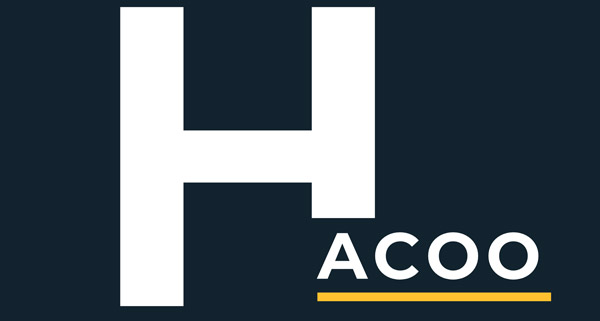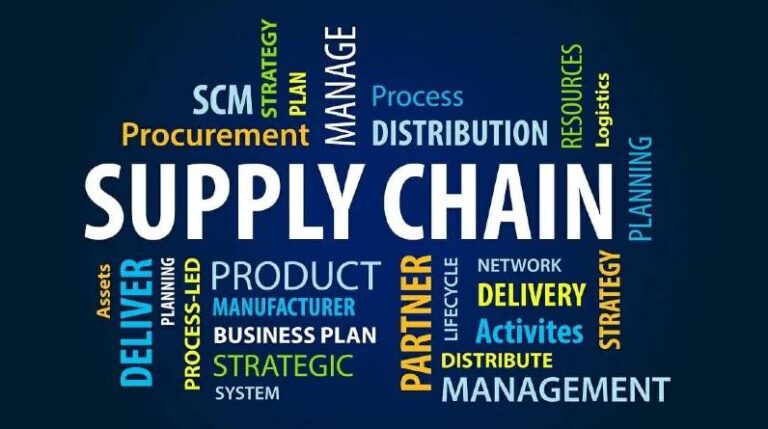In today’s rapidly evolving business landscape, sustainability is no longer a mere trend but a critical necessity. The increasing environmental challenges and rising consumer expectations are pushing companies to rethink their operations. At the heart of this transformation lies the supply chain, often the largest contributor to a company’s environmental footprint. This has created a powerful new opportunity: becoming a sustainable supply chain consultant. This role is not just about profit but about driving meaningful change toward a healthier planet and equitable societies. Let’s explore this mission-driven business idea in depth, uncovering why it matters and how to build success in this field.
What Is a Sustainable Supply Chain Consultant?
A sustainable supply chain consultant advises organizations on integrating eco-friendly and socially responsible practices throughout their supply chains. Their goal is to help businesses reduce environmental impacts, improve social outcomes, and enhance long-term economic viability. Unlike traditional supply chain consultants, they focus on embedding sustainability into every link—from raw material sourcing to product delivery and end-of-life management.
This involves guiding companies on ethical sourcing, energy efficiency, waste reduction, carbon footprint measurement, transparency, and resilience against climate-related disruptions. These experts blend deep knowledge of supply chain operations with sustainability science and regulatory standards to create actionable, measurable strategies.
Why Sustainable Supply Chain Consulting Is a Mission-Driven Business
Environmental stewardship and social equity underpin this consulting niche, aligning closely with global efforts to combat climate change and promote human rights. For consultants, it’s a chance to be part of the solution, influencing how goods are made and moved in ways that protect ecosystems and communities.
Businesses increasingly recognize that sustainable supply chains:
- Lower operational risks tied to resource scarcity and climate events
- Boost brand reputation and consumer trust
- Unlock cost savings via efficiency and innovation
- Attract investors prioritizing ESG (Environmental, Social, Governance) criteria
By facilitating these outcomes, consultants play a critical role in steering the global economy toward sustainability while generating rewarding professional and financial returns.
Core Areas of Focus for Sustainable Supply Chain Consultants
1. Energy and Emissions Reduction
Consultants assess energy consumption across manufacturing, logistics, and warehousing, recommending renewable sources and efficiency upgrades. For example, switching distribution fleets to electric vehicles or optimizing transportation routes to reduce fuel use can significantly cut greenhouse gas emissions.
2. Ethical Sourcing and Labor Practices
Ensuring suppliers adhere to fair labor standards and environmental regulations protects workers and improves supply chain integrity. Consultants help design audits, certification processes, and supplier training programs, often partnering with third-party organizations to verify compliance.
3. Waste Minimization and Circularity
Advisors guide companies on redesigning products and packaging to minimize waste and enable reuse or recycling. They promote circular economy principles, encouraging closed-loop supply chains that extend product lifecycles and reduce landfill dependency.
4. Transparency and Traceability
Using digital tools like blockchain and IoT, consultants enhance supply chain visibility, allowing companies and consumers to track product origins, carbon footprints, and ethical credentials. This transparency builds trust and aids regulatory compliance.
5. Climate Risk Management and Resilience
Assessing vulnerabilities to climate-related disruptions, consultants help businesses diversify sourcing, develop contingency plans, and integrate scenario analysis to maintain continuity amid shocks like extreme weather or resource shortages.
Emerging Technologies Empowering Sustainable Consulting
Artificial Intelligence (AI), Big Data analytics, and blockchain are revolutionizing sustainable supply chain consulting. AI enables predictive forecasting for demand and emissions, while Big Data helps analyze complex supply networks to identify improvement opportunities. Blockchain provides immutable records ensuring supply chain transparency and authenticity.
Consultants adept at leveraging these tools can offer high-impact solutions, making sustainability measurable, actionable, and scalable for clients.
Building a Sustainable Supply Chain Consulting Business: A Fresh Perspective
Starting this business requires more than expertise—it demands mission-driven leadership and innovative thinking. Here are strategic steps to succeed:
Define Your Unique Value Proposition
Focus on a niche, such as renewable energy integration, ethical sourcing audits, or climate risk modeling. Tailoring services to emerging industry needs differentiates you from generic consulting.
Invest in Multidisciplinary Expertise
Combine supply chain knowledge with sustainability certifications, data science skills, and understanding of ESG regulations. Collaborate with environmental scientists, social auditors, and tech developers.
Build Strategic Partnerships
Partner with universities, NGOs, technology providers, and industry associations to access resources, credibility, and client pipelines.
Develop Scalable Service Models
Offer modular consulting packages—from quick diagnostics to full-scale transformation projects—catering to businesses of various sizes and budgets.
Incorporate Impact Measurement and Reporting
Help clients track key performance indicators (KPIs) aligned with global frameworks like the Task Force on Climate-Related Financial Disclosures (TCFD) or the Global Reporting Initiative (GRI). This reinforces accountability and continuous improvement.
Table: Key Benefits of Hiring a Sustainable Supply Chain Consultant
| Benefit | Description | Example |
| Cost Savings | Optimize resource use, reduce waste, lower energy bills | Walmart’s supply chain energy initiatives |
| Risk Mitigation | Prepare for climate disruptions and regulatory changes | Toyota’s Business Continuity Plan post-2011 |
| Brand Enhancement | Build consumer trust through transparency and ethics | Starbucks’ C.A.F.E. Practices for coffee sourcing |
| Market Access | Comply with regulations and qualify for green certifications | Unilever’s eco-friendly packaging |
| Innovation Acceleration | Leverage AI, blockchain, and circular economy models | Nike’s Move to Zero sustainability campaign |
Real-World Success Stories
- Nike’s Move to Zero Campaign: Nike aims for zero carbon and zero waste, integrating recycled materials and renewable energy across their supply chain. Their transparent reporting and innovation set industry benchmarks.
- Toyota’s Supply Chain Resilience: After the 2011 disaster disrupted semiconductor supplies, Toyota implemented strategic stockpiling and supplier diversification, enabling robust production even during global shortages.
- Unilever’s Packaging Revolution: Unilever redesigned packaging to reduce plastic use by adopting lightweight, recycled materials, aligning with global sustainability goals while cutting costs.
Conclusion: A Purpose-Driven Future
Sustainable supply chain consulting stands at the intersection of business innovation and global responsibility. As corporations grapple with the environmental and social imperatives of the 21st century, consultants with the vision and expertise to guide sustainable transformation will be invaluable partners.
This mission-driven business idea offers more than a lucrative career—it provides a platform to influence systemic change, help companies thrive sustainably, and contribute to a healthier planet. For professionals passionate about making a difference, sustainable supply chain consulting is both a timely opportunity and a lasting commitment.
Frequently Asked Questions (FAQ)
Q1: What qualifications do I need to become a sustainable supply chain consultant?
A background in supply chain management, sustainability, environmental science, or business strategy is ideal. Supplementary certifications such as LEED, ISO 14001, GRI Standards, or a Master’s in Sustainable Business can significantly enhance your profile.
Q2: How profitable is this consulting niche?
While profit margins depend on your business model and clientele, boutique firms in this space often enjoy net margins of 25–40%, particularly when they specialize in high-value services like ESG strategy, emissions reduction, or digital traceability systems.
Q3: Can small businesses benefit from hiring a sustainable supply chain consultant?
Absolutely. Even smaller firms can improve operational efficiency, reduce resource costs, build stronger supplier relationships, and meet compliance or investor expectations with the help of a focused consulting engagement.
Q4: Is the demand limited to large corporations?
No. While large corporations are leading sustainability investments, mid-sized enterprises, startups, and even NGOs are increasingly seeking consulting support to meet regulations, reduce risk, and align with ESG frameworks.
Q5: What tools or technologies should a consultant be proficient in?
Key tools include life cycle assessment software (e.g., SimaPro, OpenLCA), carbon accounting platforms, blockchain for traceability, and data visualization tools like Tableau or Power BI. Familiarity with frameworks like TCFD, GRI, and the Science-Based Targets initiative is also beneficial.
Q6: How long does a typical consulting engagement last?
This varies based on scope. Diagnostic assessments or audits may take a few weeks, while strategy development and implementation support can span several months or even years in a retained advisor role.
Q7: How can consultants stay updated in this fast-evolving field?
Stay connected through professional networks like the Global Supply Chain Institute, attend sustainability conferences, follow ESG regulatory changes, subscribe to industry journals, and continuously invest in skill upgrades (AI, IoT, ESG reporting, etc.).
For more insightful articles and the latest updates, keep visiting Hacoo.

